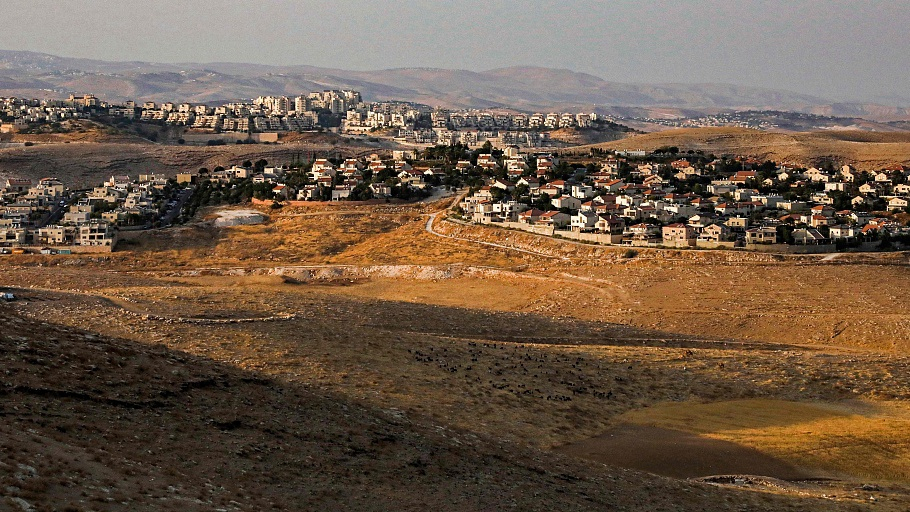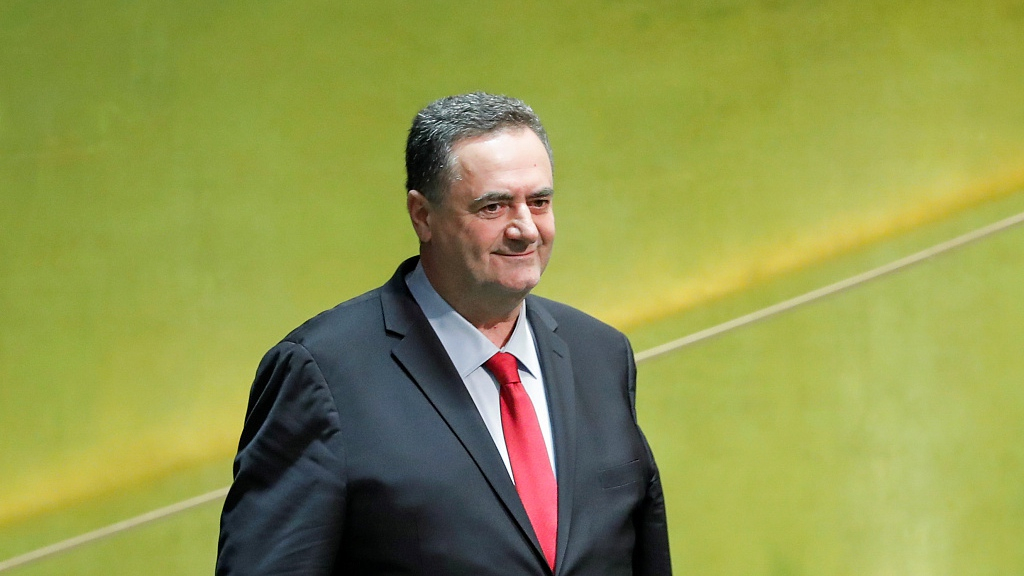
This picture taken from the Palestinian village of al-Sawahre, near the village of Abu Dis in the occupied West Bank near East Jerusalem on September 20, 2019 shows a view of the Israeli settlement of Maale Adumim. /VCG Photo
This picture taken from the Palestinian village of al-Sawahre, near the village of Abu Dis in the occupied West Bank near East Jerusalem on September 20, 2019 shows a view of the Israeli settlement of Maale Adumim. /VCG Photo
Israeli Foreign Minister Israel Katz said Sunday he was seeking "non-aggression" agreements with Gulf Arab nations that do not formally recognize the country as a prelude to possible future peace deals.
Details of the proposal were not made public, but it was the latest sign of Israel's push to improve ties with Gulf Arab nations with whom it has no formal diplomatic relations.
Israel's occupation of Palestinian territory has long served as a major factor preventing peace deals with Arab countries, but common concerns over Iran are widely seen as having brought them closer in recent years.
"Recently, I have been promoting, under the backing of the United States, a political initiative to sign 'non-aggression agreements' with the Arab Gulf states," Katz wrote on Twitter.

Israeli Foreign Minister Israel Katz arrives to address the 74th session of the United Nations General Assembly at U.N. Headquarters in New York City, U.S., September 26, 2019. /VCG Photo
Israeli Foreign Minister Israel Katz arrives to address the 74th session of the United Nations General Assembly at U.N. Headquarters in New York City, U.S., September 26, 2019. /VCG Photo
"The historic move will put an end to the conflict and allow civilian cooperation until peace agreements are signed."
Katz said he discussed the initiative with unnamed Arab foreign ministers and U.S. President Donald Trump's outgoing envoy Jason Greenblatt while attending the UN General Assembly in late September.
A spokesperson for Katz declined to provide further details for now, and it was not clear how much progress he has made in the endeavor.
Only two Arab countries, Jordan and Egypt, have peace treaties with Israel, but there have been overt signs in recent months of improved relations with Gulf nations.
A year ago, Israeli Prime Minister Benjamin Netanyahu held surprise talks with Oman's Sultan Qaboos in Muscat.
Katz in July said he had met his Bahraini counterpart publicly for the first time during a visit to Washington.
In late June, a group of Israeli journalists attended the U.S.-led economic conference on Israeli-Palestinian peace in Bahrain.
All did not go well, however, when a group of invitees from Arab states visited Israel in July.
Palestinians hurled abuse and chairs at a member of the delegation, a Saudi blogger, as he visited east Jerusalem's Old City.
East Jerusalem was occupied by Israel in the 1967 Six-Day War and later annexed in a move never recognized by the international community.
Israel sees the entire city as its capital, while the Palestinians see the eastern sector as the capital of their future state.
Source(s): AFP